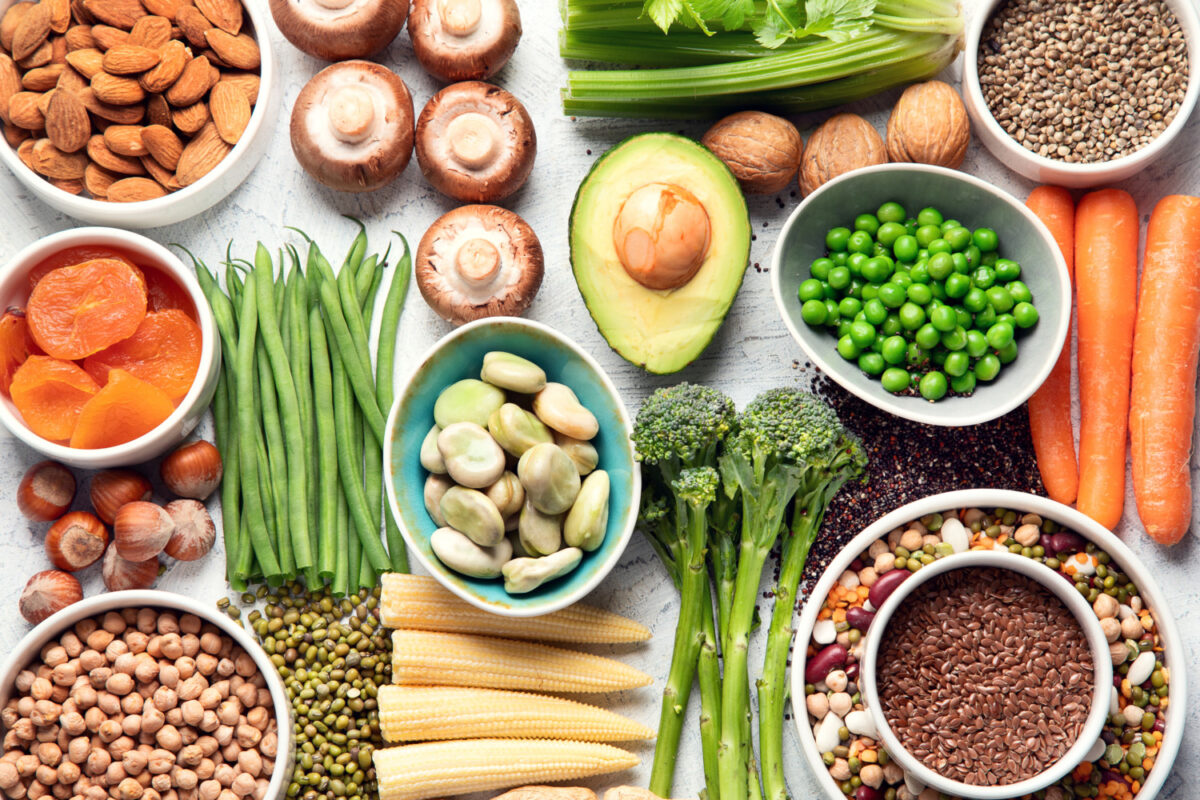Eating a ‘green’ version of the Mediterranean diet can lead to even more weight loss

The heart-healthy Mediterranean diet has already been recognized as the “best overall diet” by a U.S. News and World Report analysis involving health experts. This way of eating is all about limiting red meat and building meals around plant-based foods, with a moderate amount of dairy, poultry, eggs and seafood.
Now, a new study published in the journal Heart reveals that eating a greener version of the Mediterranean diet, which involves scaling back even further on red meat and poultry and eating more protein-packed plants, could be even healthier and lead to more weight loss.
Here’s what the study discovered about the green Mediterranean diet, and what the registered dietitians Simplemost interviewed have to say about this plant-centric way of eating.
The Green Mediterranean Diet Can Lead To More Weight Loss
The study published in Heart involved 294 sedentary and moderately obese people with an average age of 51 (and mostly men; only 35 participants were women). They were randomly assigned to three dietary groups: The green Mediterranean diet, the Mediterranean diet and a more generic healthy eating diet.
After six months, those in the green Mediterranean group lost 13.6 pounds; those following the Mediterranean diet lost 11.9 pounds; and the participants who were given basic guidelines for a healthy diet lost 3.3 pounds.
Those who were following the traditional Mediterranean diet ate meals low in simple carbs, rich in veggies, with poultry and fish replacing red meat. It included an ounce of walnuts a day.
The green Mediterranean group also ate an ounce of walnuts a day, avoided red and processed meat and ate higher quantities of plant-based foods. Their diet included three to four cups a day of green tea, frozen cubes of Wolffia globosa (a flowering plant that tastes like watercress and is packed with protein), and an aquatic plant duckweed, consumed as a green protein shake.
Not only did those on the greener Med diet lose more weight, they also trimmed more inches off their waistlines and saw more significant drops in their LDL (or “bad”) cholesterol levels.
Should You Switch To A Green Mediterranean Diet?
So, why does the greener version of the diet yield better results?
Plant-based proteins are naturally low in saturated fats and cholesterol, and many are high in fiber and antioxidants,” says registered dietitian Bri Bell, with Frugal Minimalist Kitchen and the Dietitian Directory.
“Animal protein sources like red meat and poultry are generally higher in fat and cholesterol and have virtually no fiber or antioxidants,” Bell says.
The diet appears to take a flexitarian approach to plant-based eating, with the researchers saying “additional restriction of meat with a parallel increase in plant-based, protein rich foods” could provide health benefits beyond the traditional Mediterranean diet.
If you’re looking to eliminate red meat, plant-based proteins like duckweed, chia seeds, hemp seeds, flax seeds as well as fish can be substitutes, says registered dietitian Rima Kleiner of Dish on Fish, an initiative sponsored by the National Fisheries Institute.
But, it’s important to note that simply simply following a Mediterranean-style way of eating provides many benefits, from improved cardiovascular and brain health to promoting a healthy weight and longevity, Kleiner says.
“Study after study shows that eating a diet rich in a variety of vegetables, fruits, whole grains, fish and shellfish, nuts, beans and olive oil provides tremendous health benefits for all life stages,” she says.






